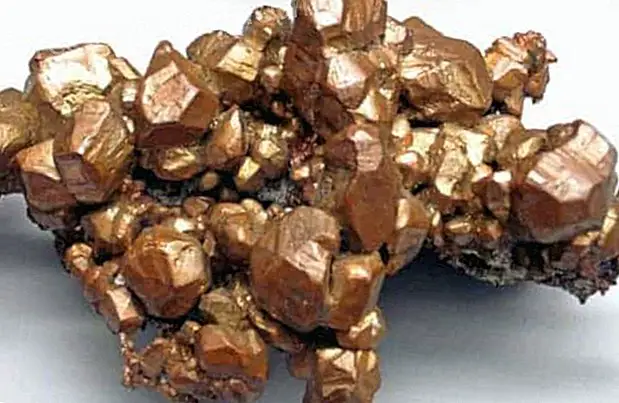
He has been dedicated to researching the relationship between human beings and food for ten years. Author of several food bestsellers, Michael Pollan publishes in Spanish this little essential reading guide so that those who continue to “feed” on junk food know that this can be the cause of much of their illnesses… They will not discover America, but at least will reveal in a fun and entertaining way the poison that is brought to the plate with the so-called "western diet".
“Every year 17, 000 new (food) products appear in supermarkets. Most of them do not deserve to be called food. ”
With these impressive first lines, Michael Pollan already puts us on the track of what this small and basic manual is going to deal with: the distinction between real, healthy food, and treated, processed food, clearly detrimental to medium and healthy health. long term.
Learning to identify the latter ("edible substances with food aspect", in Pollan's words) is not as simple as we think, since it constitutes a huge proportion of the total food supply. And it is not limited to bubbling artificial soft drinks, appetizers of striking colors and strange shapes, or several easily recognizable substitutes (such as cream cheese without cheese!), But extends to all kinds of basic products, such as yogurt, bread, canned tomato, or the meat of cereal-fed herbivorous animals (often transgenic) instead of grass (forcing antibiotics that eventually end up in the consumer's plate), and loaded fruits and vegetables of pesticides and chemical fertilizers.
Ten years now he has been Pollan (1955), Professor of Journalism in Berckley (California) and writer, dedicated to the investigation of the relationship between man and food in its different aspects (biological, historical, social, cultural, anthropological, political aspects, mercantile, marketing, advertising ...), following in the wake of Paul Rozin and Claude Fischler, gathering considerable information and giving special importance to the study of the so-called "Western diet", which prevails in the United States and, unfortunately, every day more present in the rest of the countries of the world.
To this he has dedicated two other recent works of enormous editorial success: "Omnivore's dilemma", 2006 ("The dilemma of the omnivore", 2011) and "In defense of food", 2008 (published in Spain as "The detective in the supermarket ( Booket Logista) ![]() “, 2009), both rigorous and at the same time very entertaining.
“, 2009), both rigorous and at the same time very entertaining.
But in this condenses the experience and reflections set out in the previous ones (where we will find exhaustive documentation) translating them into advice, in a radically abbreviated and practical review oriented to daily habits, accompanying the rules that require it of interesting and curious explanations, often Not without humor.
Adding to his status as an activist, Pollan is not satisfied with contemplating the facts from a distance, because he also denounces and points out responsibilities, something necessary for us to understand this mess, establish a diagnosis and seek solutions.
There are many different diets throughout the land to which the human body has been adapting, he explains, some of which may seem aberrant, although if they were, the people who adopted them would not accompany us at this time, but with the western diet “we have created the only diet that makes people sick! "Ironizes.
Of course, these processed foods produce huge gains to the food industry, including, unfortunately, to pharmaceutical laboratories, which obtain infinitely greater benefits from chronic diseases (largely caused by these synthetic items) than working on prevention. The interests at stake are many and great.
As an example is soy: ´´Tofu, salsa, tempe has always been taken, but… isolated soy protein, soy isoflavones, textured vegetable protein, partially hydrogenated soy oils…? “Or it makes us impeccable questions: ´´Who can like ethoxylated diglycerides? In nature we will not find anything similar.
While valuing the positive they contribute, Pollan is very critical of nutrition experts: " With only 200 years old, nutrition science is a field that, to put it in good words, is still in diapers ", it states. In addition, it considers that it is too groped by the big food companies, who often use their contributions, in a biased way, as advertising slots to increase sales.
The alternative? Like so many other students of industrial food and its negative effects on human health, Pollan concludes in the need to return to normal products, those of a lifetime, natural, ecological, proximity and in any case minimally treated : The greater the degree of processing, the greater the risk of containing potentially harmful substances.
Against the western diet, he proposes the return to the roots, to the kitchen of our ancestors. ´´The kitchen full of meaning that we have known through our mothers and grandmothers is culture, not something that is improvised, it is the result of a lot of work, of many, in many parts and for a long time, a wise choice of what to eat and how to combine it, prepare it. ” Traditions, by the way, endorsed mostly by current knowledge.
Eat real food, in moderation, and especially vegetables is your maximum.
With Knowing how to eat: 64 basic rules for learning to eat well (Debate) ![]() (published in English in 2009 and now finally in Spanish), Michael Pollan intends to simplify the decision to buy, to provide himself with good food, to facilitate the preparation of a sensible shopping list (the ideal would be to grow our own garden or at least some pots and ensure, at least, the good care of animals and the honest origin of animal protein). And there comes into play the dilemma of the omnivore, a problem that man had solved to a large extent and that someone has begun to muddle: deciding what to eat and what is almost equally important, how to carry it out, customs, uses.
(published in English in 2009 and now finally in Spanish), Michael Pollan intends to simplify the decision to buy, to provide himself with good food, to facilitate the preparation of a sensible shopping list (the ideal would be to grow our own garden or at least some pots and ensure, at least, the good care of animals and the honest origin of animal protein). And there comes into play the dilemma of the omnivore, a problem that man had solved to a large extent and that someone has begun to muddle: deciding what to eat and what is almost equally important, how to carry it out, customs, uses.
Should we learn to eat again? It seems so.
What and how to eat?
If you want to eat food instead of food-like edible substances, these are some of the basic rules that Pollan advises us to follow:
Avoid foods that cite any kind of sugars (or sweeteners) among their first three ingredients: It usually means that they contain too much. The ingredients are ordered by proportions, more or less.
Avoid products that have more than five ingredients in their composition: the probability that they are highly processed is very high. But above all avoid refreshing drinks, the anti-food par excellence .
Avoid products that claim to be healthy: to be able to claim it they need a label and a container as support, and everything packed almost always amounts to processed. ( ) In addition, only the large producers have the means to ensure that the health authorities approve these slogans statements that are usually based on incomplete data and poor research . Healthy food has hardly any money to advertise.
Avoid products that contain ingredients that a primary school child cannot pronounce: simple offers many more guarantees.
Avoid foods that you see advertised on television: well over two thirds of TV ads in the US are processed products.Eat only food cooked by humans: it is safer, and one must think that one of the keys to the success of processed foods is their durability. The big corporations aspire to make their products immortal, which implies alterations, additions.
- Buy in the peripheral areas of the supermarket and stay away from the center (usually fresh products are placed in the lateral areas).
- Eat only foods that will end up rotting: With some exceptions, such as honey, "real food is alive ... it has to die." The foods that take the longest to expire are the least nutritious and most processed.
- Do not eat anything that has been cooked in places where everyone has to wear a surgical mask.
- If they serve you through the car window, it's not food.
- If it's called the same in all languages, it's not food (think Big Mac, Cheetos or Pringles).
- Do not eat breakfast cereals that change the color of the milk (very processed, full of refined carbohydrates and chemical additives)- Have a glass of wine with dinner.
- Pay more and eat less.
- Eat very little or no meat.
- Eat real food, in moderation, and especially vegetables. " Of the 75 or 100 elements we need to stay healthy, almost everyone is in the plants."
- Spend as much time enjoying the food as it has taken to prepare.
- Eat always sitting at the table.
- Kitchen. There are studies that show how the health of people who cook at home is much better than that of people who usually eat outside.
- Grow your own food. " We should all cultivate, even in the window or on the balconies."
Long live the bio
Seen in: Eco Farmer
Knowing how to eat, 64 basic rules for learning to eat well - Michael Pollan






